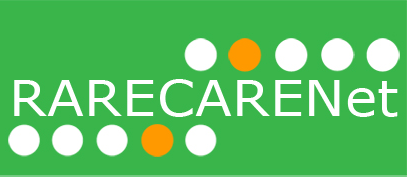RARECARENet Information Network on Rare Cancers (RARECARENet)
RARECARENet is funded by the EU’s Health Programme 2008-2013: the Second Programme of Community Action in the Field of Health 2008-2013. Grant No 20111201.
01/05/2012 – 01/05/2016 (4 years)
Fondazione IRCCS, Instituto Nazionale dei Tumori, Italy
VIEW PARTNERS >The University of Edinburgh
Institut de Cancérologie Gustave Roussy
Istituto Superiore di Sanità
Integraal Kankercentrum Nederland
Fondazione IRCCS, Istituto Nazionale dei Tumori, Italy
European Cancer Patient Coalition (ECPC)
National Oncology Hospital, Bulgaria
Institute of Oncology, Ljubljana
National Cancer Registry Ireland
Finnish Cancer Registry – Institute for Statistical and Epidemiological Cancer Research
Why it matters
The Surveillance of Rare Cancers in Europe (RARECARE) project estimated that around 4 million people in the European Union are affected by rare cancers. Despite the rarity of each of the 186 identified rare cancers, together they represent about 22% of all cancer cases diagnosed in the European Union. Rare cancer patients face challenges such as late or incorrect diagnosis, a lack of access to appropriate therapies and clinical expertise, and a lack of clinical trials. RARECARENet aimed to build an information network to provide comprehensive information on rare cancers to patients, oncologists, general practitioners, researchers and health authorities in Europe. RARECARENet worked towards improving timeliness and accuracy of diagnosis, facilitation of access to high-quality treatment for patients with rare cancers, identification of centres of expertise for rare cancers, and standardisation of practices in Europe.
“It is a lonely cancer because you are robbed of people going through the same thing”
Rare Cancer PatientWhat ECPC does
ECPC led the work on information for patients with rare cancers, developing and disseminating a list of patient associations dedicated to rare cancers and information to raise awareness about the availability of patient associations dedicated to rare diseases. Additionally, ECPC compiled a list of rare cancer information for patients and organised 4 workshops to train patient advocates to inform, educate and incentivise rare cancer patients. Lastly, ECPC collaborated with experts to create patient information material on several cancers. ECPC also contributed to a set of qualification criteria for centres of expertise for rare cancers and then conducted a survey among its members to identify and compile a list of these centres. ECPC collaborated with its Working Group on Rare Cancers and Rare Cancers Europe to achieve these goals and used RARECARENet as an opportunity to identify additional cancer patient organisations.


